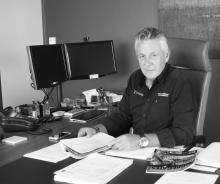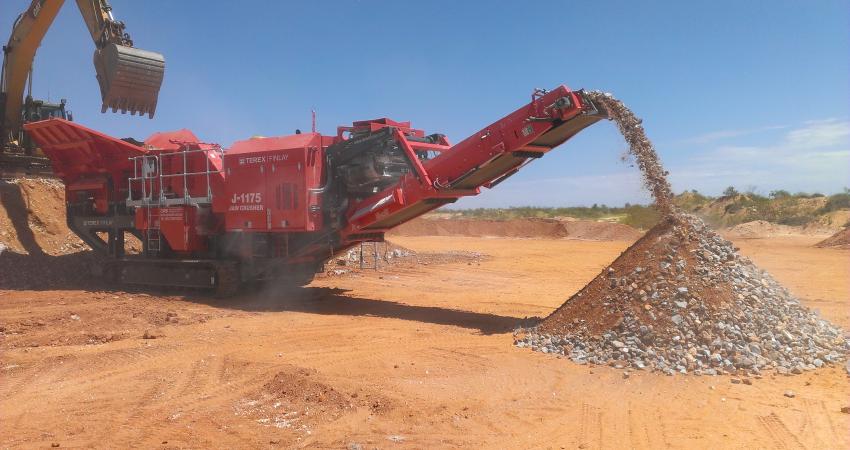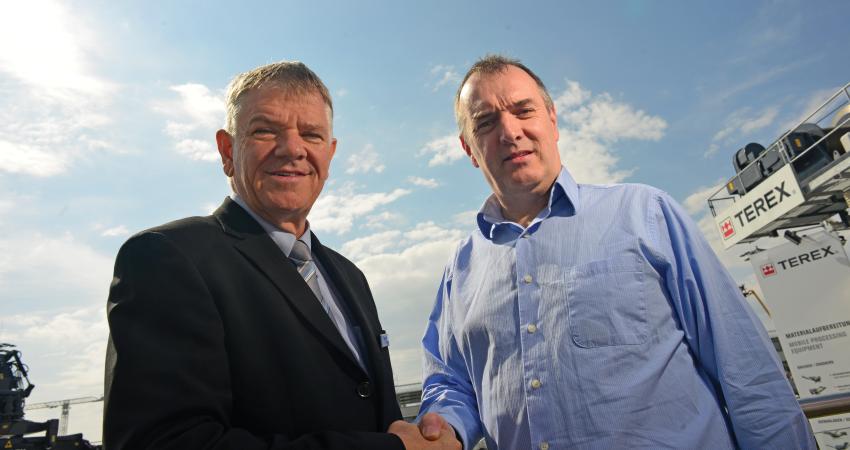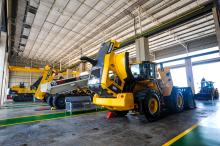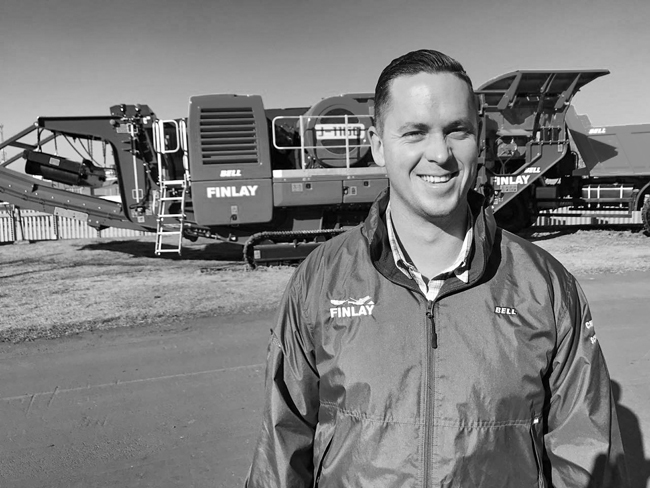
Tyron Ravenscroft, Finlay product manager at Bell Equipment – Terex Finlay’s dealer in southern Africa – has dedicated all of his eight-year career to looking after the Terex Finlay brand in the region. For the past four years, he has been the force behind the brand’s firm growth under the stewardship of Bell Equipment. Munesu Shoko reports.
Behind every successful equipment brand in any market is a good dealer. Similarly, any dealer’s success hinges on the dedication of its product support team to offer unparalleled aftermarket support, which is ultimately the differentiator between success and stagnation.
When
“I studied BCom (Management) at the University of Johannesburg and joined
When the Finlay brand changed hands in 2013, he moved across and joined the Bell revolution on 1 November 2014, where he was appointed to a certain territory to drive Terex Finlay sales together with a team of existing Bell Equipment sales representatives in the area. Just under a year later he became the Finlay product manager. The following year (in 2016), he took on the dual role of Finlay product manager and sales manager for the central region.
In his current role, he is responsible for ensuring that Finlay machines are ordered with the correct specifications that suit the local market’s applications and operating conditions, as well as making sure that there is a right mix of stock and quantities on the ground to meet projected demand.
“My responsibilities also include providing sales training to the Bell team on the Finlay range, attending dealer conferences and keeping up-to-date with product improvements and latest technologies. I also provide input to the Bell marketing team’s marketing strategy, as well as ensuring that the level of service our Finlay customers receive meets the same high standard expected by Bell. On the other hand, we also provide customer feedback to the OEM (original equipment manufacturer), which informs Finlay’s product development strategies,” says Ravenscroft.
After four years at the helm of the Terex Finlay brand at Bell Equipment, Ravenscroft remains as passionate as ever. This year marks eight uninterrupted years of his association with the brand. Finlay continues to benefit from his knowledge and guidance. “Finlay are very happy with us as their dealer and often compliment us on our performance. From a Bell perspective, the brand has also exceeded our expectations and has truly been a sound addition to our business,” he says.
Speaking about the partnership, Ravenscroft says it has been a win-win collaboration between the two companies, as they both leverage each other’s strengths. The Finlay range of crushing and screening gear enables Bell to offer a full solution to its customers. “Finlay complements Bell’s existing product offering and is in line with our strategy to provide a one-stop shop for first-class equipment solutions to our customers throughout southern Africa,” he says.
The partnership was a natural progression for Bell as it already distributes and supports its range of articulated haulers, excavators and wheeled loaders, which are used extensively in the mining and quarry industries together with crushers and screens. “All crushers and screens require loading tools – excavators and wheeled loaders – so the opportunity for package deals is massive,” he says. In addition, the new partnership ties in closely with Bell’s
On the other hand, Finlay has also benefitted from Bell’s reputation in the market, as well as its extended support infrastructure. Accounting for between 130 and 150 units per year, southern Africa is a growing mobile crushing and screening region. Through Bell Equipment, Finlay has a strong business partner with locations throughout the marketplace and focused customer support. This has offered it a great partner platform to further develop new equipment sales and support the large existing population of machines across the region.
Bell Equipment’s Finlay dealership jurisdiction covers South Africa, Namibia, Swaziland, Lesotho, Zimbabwe, Mozambique, Botswana, the Democratic Republic of Congo (DRC) and Zambia, areas where it already boasts a strong sales and support network. “Bell applies a sub-dealer approach in Botswana and Mozambique and in October this year, we appointed Kanu Equipment as our dealer in the DRC, and they will also distribute and support Finlay equipment with our backing, support and stocking infrastructure.”
Speaking about the Terex Finlay range available for these markets, Ravenscroft says Bell brings in four jaw crusher models, five cone crushers, six impact crushers, six incline screens, four scalping screens and one horizontal screen. This includes dual power units and screens featuring Spaleck technology.
In 2015, Terex Finlay’s dual-powered variants of the existing J-1175 jaw crusher and C-1540 cone crusher arrived in southern Africa. The two machines joined the Terex Finlay 694+ dual-powered inclined screen which had been launched early in 2014. The dual power system came at a time when equipment operators needed the crushing technology’s flexibility to address a number of challenges and opportunities.
Dual-powered crushers are both electrically and hydraulically driven, giving customers an alternative energy source to operate their range of equipment. Once positioned onsite and connected to an external electric power source, the units can be switched to operate on electricity, meaning they will have zero emissions, while retaining all the benefits of a mobile machine.
Despite the apparent advantages of dual-powered crushing solutions, there has been a slow uptake of this technology in southern Africa. Bell Equipment reports that the response to the technology has been slower, mainly because shortly after launching in 2015, the oil price decreased. The initial capital cost of the dual power units is also more than their regular counterparts, and the change in the fuel price essentially means that it takes longer for the dual power units to pay for themselves in the current climate.
That being said, opportunity abounds for this technology in southern Africa, especially considering that the option offered by dual power units to run machines on electricity significantly lowers production costs and delivers a lower cost per tonne. Customers report that the Finlay dual power units burn half the diesel of a conventional unit and they have been impressed with the production rates and the efficiency in terms of running costs.
Reflecting on the market at large, Ravenscroft says the South African market is performing well at this stage. “The Northern Cape diamond fields have taken the most units to date because that market has accepted Finlay as a premium brand that delivers the best machine performance for the application,” he says.
However, he also sees prospects of sustainable growth in other African regions, especially in the Copperbelt of Zambia and the DRC, where a combination of construction and mining activities are driving the market. The customer base is equally split between mining contractors and end users. “The market for crushing and screening equipment is going strong at the moment, especially on the mining side. We have enjoyed constant year-on-year growth and foresee further growth in 2019,” concludes Ravenscroft.


